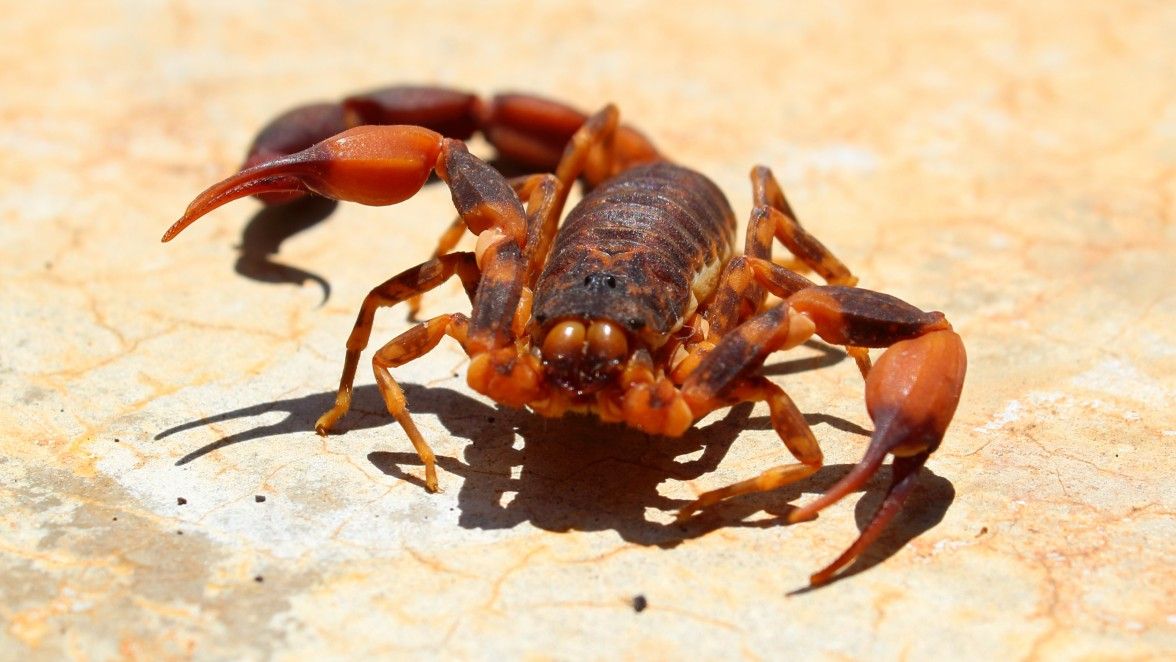Brazil’s Scorpion Crisis: A Stinging Concern
Scientists warn that scorpions are becoming increasingly dominant in Brazil’s urban areas. This surge has led to a significant increase…

Scientists warn that scorpions are becoming increasingly dominant in Brazil’s urban areas. This surge has led to a significant increase in sting occurrences, including several fatalities, predominantly due to attacks by Brazilian yellow scorpions, which possess highly poisonous venom.
Rising temperatures due to climate change along with increased urbanization are being cited as reasons behind the surge in scorpion numbers, and according to experts, it may now be too late to prevent this trend.
Deadly venom
Over 1.1 million scorpion sting cases were documented in Brazil from 2014 to 2023, indicating a significant increase of 155% in reports throughout this time frame, as stated in a study published in
Frontiers in Public Health
The increase in figures is attributed to “fast, unorganized urbanization,” as stated.
The Guardian
The expansion of high-density housing developments infringes upon the natural territories of scorpions in their wilderness habitat, and inadequate waste management generates novel settings where these creatures can flourish.
This widespread urbanization not only drives off the natural predators of scorpions—like lizards and birds—but also increases the population of cockroaches, which serve as delicious food sources for these arachnids, according to the statement.
Phys.org
Consequently, scorpions have emerged as “the deadliest venomous animals” in Brazil, with 152 fatalities due to scorpion stings recorded last year, surpassing the 140 deaths caused by snakebites during the same period.
The deadliest scorpion in South America is the native Brazilian yellow scorpion; its venom has the capability to cause death in humans within just a few hours. Furthermore, due to rising temperatures from climate change, these pests are becoming increasingly active, consuming larger quantities of food and multiplying at faster rates.
‘Herculean task’
Poisonous scorpions have “already taken their position next to violent crime and dangerous traffic” among the “ongoing issues” that urban dwellers in Brazil must “face every day,” noted Hamilton Coimbra Carvalho, a researcher from the University of São Paulo, writing about this phenomenon.
The Conversation
in 2019.
The government seems “ill-equipped” for the “Herculean, if not downright impossible”, task of tackling the infestations, with no plan other than “tepid” efforts to train health officials in “scorpion risk”. It’s likely already to be “too late” to stop the spread of scorpions across Brazil’s cities.
However, the arachnids are “not our adversaries,” according to Manuela Berto Pucca from São Paulo State University, as quoted by The Guardian. They serve as integral components of the ecosystem, fulfilling vital functions such as regulating insect numbers and sustaining biodiversity. Additionally, their behavior towards humans is defensive rather than aggressive.
Like this article? For more stories like this, follow us on MSN by clicking the +Follow button at the top of this page.





